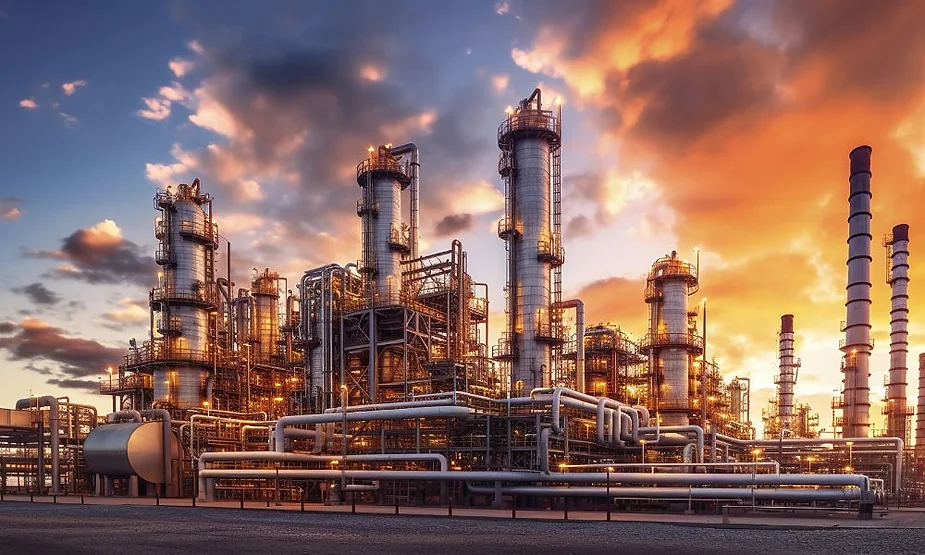Industrial
Rubber seals are widely used in the industrial field due to their resilience, durability, and ability to create airtight or fluid-tight seals. They serve in a range of applications, from machinery and heavy equipment to fluid management and electronics. Here is how rubber seals are applied in the industrial sector.
1. Hydraulic and Pneumatic Systems
Hydraulic Cylinders and Pumps: Rubber seals in hydraulic systems prevent fluid leaks, maintaining pressure and efficiency.Pneumatic Valves and Actuators: In pneumatic systems, seals prevent air leaks, maintaining consistent pressure.
2. Industrial Machinery and Heavy Equipment
Gearboxes and Bearings: Seals in gearboxes prevent oil leaks and keep contaminants out, improving machine longevity.
Hydraulic and Pneumatic Tools: Rubber seals in industrial tools (like hammers and drills) prevent leaks, enhancing safety and performance.
Manufacturing Equipment: In various manufacturing machines, rubber seals help maintain cleanliness and efficiency by preventing the ingress of dust, dirt, and liquids.
3. Electronics and Electrical Industry
Enclosures and Cases: Rubber seals protect electrical enclosures from dust, moisture, and contaminants, ensuring safe and reliable operation of sensitive components.
Cable and Wire Insulation: Seals provide insulation and protect cables from environmental factors, extending their lifespan.
Switches and Connectors: In high-voltage applications, rubber seals prevent arcing and short circuits, enhancing safety.
4. Food and Beverage Processing
Food Processing Equipment: Seals used in food processing machinery prevent leaks, withstand harsh cleaning agents, and comply with food safety standards.
Pumps and Valves: Rubber seals in pumps and valves ensure hygienic fluid transfer, preventing contamination.
Packaging Equipment: Rubber gaskets and seals maintain airtight environments in packaging equipment to keep food products fresh and safe.
5. Marine and Water Treatment
Pumps and Valves: Rubber seals in water pumps and valves prevent leaks and ensure efficient flow in marine vessels and water treatment facilities.
Desalination Plants: Seals in desalination systems withstand saltwater corrosion and high pressures.
The Type of Material Used:
1. Nitrile Rubber (NBR)
Properties: Excellent oil, fuel, and chemical resistance, good abrasion resistance.
Applications: O-rings, seals, hoses, gaskets, fuel systems, oil-resistant applications.
Temperature range: -40°C to 120°C (-40°F to 248°F).
2. Neoprene (CR)
Properties: Good resistance to oils, weathering, ozone, and chemicals, moderate heat resistance.
Applications: Gaskets, seals, hoses, vibration dampers, electrical insulation.
Temperature Range: -40°C to 120°C (-40°F to 248°F).
3. EPDM (Ethylene Propylene Diene Monomer)
Properties: Excellent resistance to heat, ozone, weathering, and steam, good electrical insulation properties.
Applications: Automotive weather seals, hoses, roofing membranes, gaskets.
Temperature Range: -50°C to 150°C (-58°F to 302°F).
4. Silicone Rubber (VMQ)
Properties: Outstanding high-temperature resistance, good electrical insulation, excellent flexibility at low temperatures.
Applications: Gaskets, seals, medical and food-grade applications, high-temperature seals.
Temperature Range: -60°C to 230°C (-76°F to 446°F).
5. Fluoroelastomers (FKM, Viton®)
Properties: Exceptional chemical resistance, high heat resistance, excellent sealing properties.
Applications: Automotive (fuel systems, gaskets), chemical processing.
Temperature Range: -20°C to 250°C (-4°F to 482°F).




